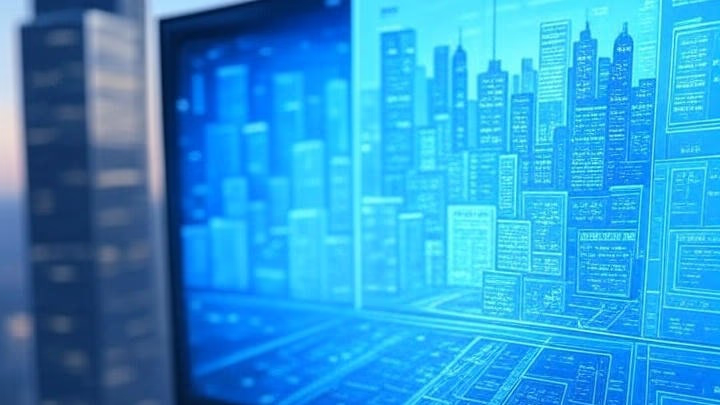The impact of technology on the real estate sector is clearly visible. Emerging technologies like Artificial Intelligence (AI), Virtual Reality (VR), and the Internet of Things (IoT) have made this sector more transparent, efficient, and customer-friendly. So, how is technology transforming the real estate sector?
Virtual Reality (VR) and Augmented Reality (AR) have revolutionized the property viewing experience. Previously, buyers had to physically visit the site to see the property, but now, with high-definition 360-degree virtual tours and AR-enabled walkthroughs, buyers can experience properties from any corner of the world. For example, VR tours allow buyers to examine every nook and cranny of a home in detail, while AR enables them to visually alter furniture or design changes in the property.
The use of virtual home tours in India has increased rapidly since 2020, especially during the COVID-19 pandemic when people were confined to their homes. By 2025, it is estimated that over 70% of real estate transactions will involve virtual tours, conserving both time and money.
AI and big data are changing the decision-making process in real estate. AI-powered algorithms analyze buyer behavior, preferences, and past transaction data to provide personalized property suggestions. For instance, real estate portals like Housing.com and MagicBricks use AI to suggest properties to buyers based on their budget, location, and lifestyle.
Furthermore, AI helps in predicting market trends, assessing property prices, and risk analysis. Through big data, developers gain insights into which areas are seeing rising demand, allowing them to plan their projects more effectively.
Blockchain technology is playing a crucial role in making real estate transactions secure and transparent. Smart contracts automate the property buying and selling process, reducing the need for intermediaries. This technology safely maintains property ownership records digitally, reducing the possibility of fraud.
Drones and the Internet of Things (IoT) have made construction and property management more efficient. Drones are used for monitoring the progress of construction sites, ensuring compliance with safety standards, and conducting aerial surveys. This saves builders both time and cost.
IoT devices, such as smart sensors, are being utilized in property management. These sensors monitor energy consumption, security, and maintenance. For instance, smart home systems allow buyers to control their home's lighting, temperature, and security through a mobile app.
PropTech startups in India are adding a new dimension to the real estate sector. For example, platforms like Trezi offer real-time collaboration for architecture and design projects, while apps like NoBroker simplify renting and selling by removing intermediaries.




